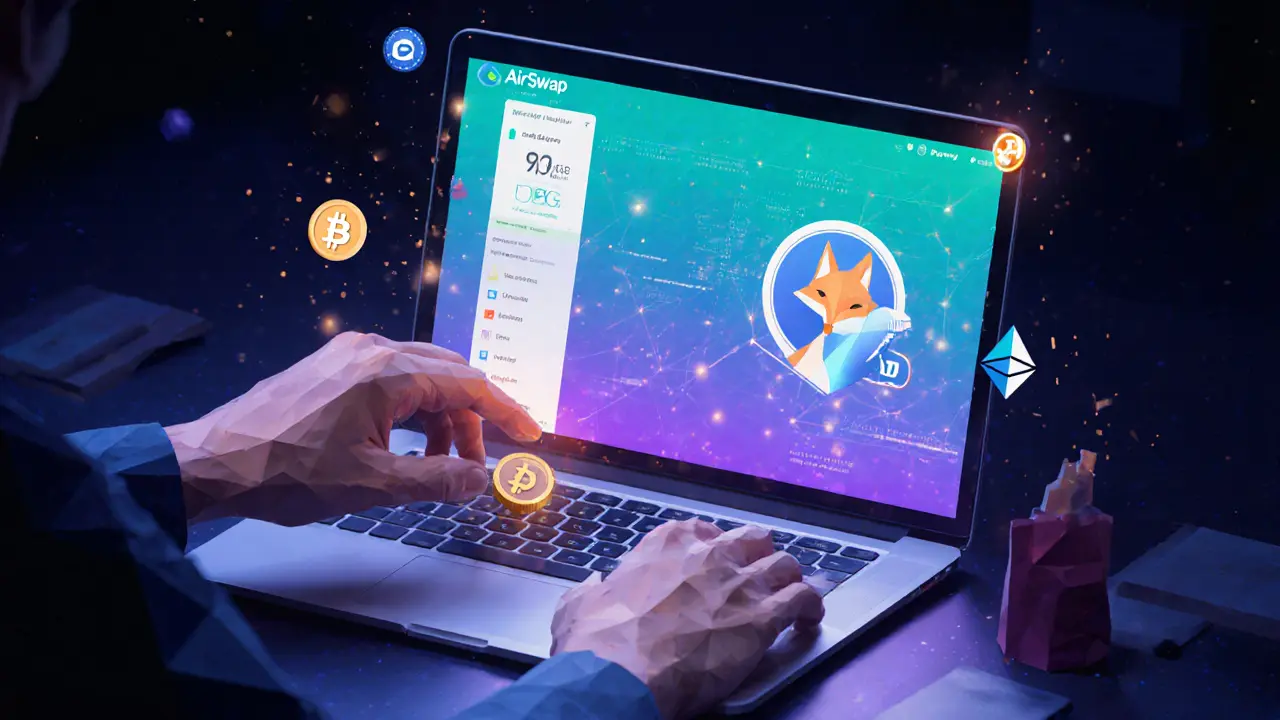AirSwap Review: What You Need to Know
When working with AirSwap, a peer‑to‑peer decentralized exchange that enables token swaps directly from wallets without an order‑book. Also known as Atomic Swaps, it removes the middle‑man and lets users keep full custody of their assets. This AirSwap review focuses on how the platform’s design impacts security, cost and speed.
Core Concepts Behind AirSwap
The AirSwap ecosystem sits squarely in the Decentralized Exchange (DEX), a network of smart contracts that matches traders without a central server. A DEX relies on Smart Contracts, self‑executing code on the blockchain that enforces trade terms automatically to lock funds, verify signatures and release tokens once conditions are met. Because every swap triggers a contract call, Gas Fees, the transaction costs paid to miners or validators become a key factor in the overall user experience. In short, AirSwap encompasses token swapping, DEX architecture, and smart‑contract execution, while requiring users to manage gas fees efficiently.
One of the biggest draws for traders is the platform’s on‑chain liquidity model. Instead of pooling assets, AirSwap matches individual orders, which means slippage is often lower and price impact is minimal. The system also supports a wide range of ERC‑20 tokens, making it a versatile tool for anyone looking to move assets without exposing them to custodial risk. Security‑focused users appreciate that private keys never leave the wallet, aligning with the principle that control equals safety.
Below you’ll find a curated selection of articles that break down AirSwap’s fee structure, compare its security features with other DEXs, and offer real‑world trading tips. Whether you’re a beginner testing a single swap or a seasoned trader building a strategy, the pieces that follow give you the practical context you need to decide if AirSwap fits your workflow.

A detailed review of AirSwap, the zero‑fee decentralized exchange, covering its features, liquidity, token outlook, pros, cons, and how it stacks up against major DEXes.
- Read More
